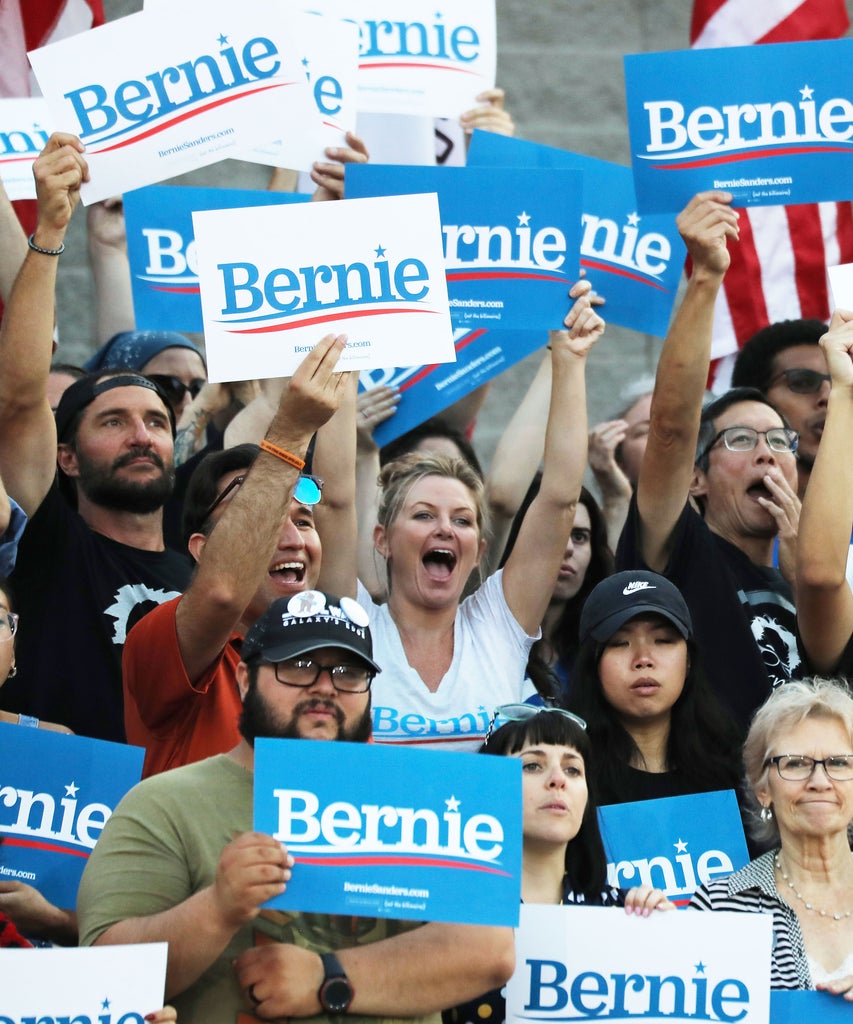
The 2020 presidential nominating contest kicked off in earnest on Monday as caucus-goers convened in Iowa to attempt to winnow the field of Democratic primary contenders.
The Iowa caucus — the first-in-the-nation voting event that will help to shape the political narrative around the frontrunner for the Democratic nomination — comes as the candidates are locked in an atypical four-way tossup. The four leaders include Sens. Bernie Sanders and Elizabeth Warren, former vice president Joe Biden, and South Bend mayor Pete Buttigieg. No one of the four leaders of the pack currently standing apart as an obvious choice to face off against incumbent President Donald Trump in November.
After the votes are tallied and the pundit class has had its say on Monday night, the candidates will move on to New Hampshire, where voters will participate in a semi-closed primary election. The process, while quite confusing and lacking transparency in practice, is only one part of the larger election. So, what’s the big difference between a caucus and a primary — and what implications do the early state nominating contests have for the rest of the primary process?
Both primaries and caucuses are about one thing: amassing delegates. In the United States, voters casting a ballot aren’t directly selecting who they want to be the presidential nominee; instead, they’re indirectly influencing the number of delegates their state will send to a given political party’s convention in the summer before an election, and those delegates will then nominate a candidate for the presidency.
In a caucus, voters engage in debate and give passionate speeches in an effort to convince their fellow caucus-goers to switch their support from one candidate to another. It’s a time-honored tradition that many consider to be quintessentially American: debate vigorously, engage with your neighbors, practice free speech, and, eventually, help to determine through popular vote who will serve as your elected representative. In comparison, a primary is a pared down version of the same process: Voters select their candidate through a blind ballot — usually by bubbling in a name on a form — without all the bells and whistles. This is more in line with the actual voting process we see in the general election.
Although delegates are the name of the game during the primary selecting process, both of the first states to vote have just peanuts to offer in comparison to the rest of the electoral map. Of the 3,979 pledged delegates that will attend the Democratic National Convention in 2020, Iowa and New Hampshire will send just 41 and 24, respectively.
But the voting contests carry increased significance in both states thanks to the outsized blitz of media attention they enjoy, as well as the fact that the candidates who emerge as frontrunners there generally go on to receive their party’s nomination. This was most notably true in 1976, when Jimmy Carter’s upstart campaign emerged victorious, stunning the nation and eventually netting Carter the presidency.
No matter what happens in Iowa on Monday, the results will be sure to shape the rest of the primary process — and, inevitably, the outcome of the general election in November.
Related Content:
Like what you see? How about some more R29 goodness, right here?
What Is The Iowa Caucus & Why Is It So Important?
Bernie Sanders Will Host Concert At Iowa Caucus
Warren & Sanders Fight May Break Their Peace Pact






